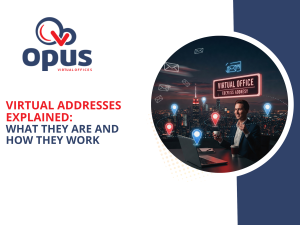The Dark Side of Hiring: Why Ghost Jobs Harm Everyone Involved
What Are Ghost Jobs?
“Ghost jobs” refer to job postings that are either non-existent or have already been filled but remain advertised. These are often known as phantom job postings. Ghost jobs can take many forms, such as listings for roles that remain open indefinitely or jobs that are posted despite being filled internally. Sometimes, companies forget to remove outdated listings, leading to confusion and frustration among job seekers.
Why Do Companies Post Fake Job Postings?
There are several reasons why companies, including temp agencies and HR departments, post ghost jobs:
- Building a candidate pool: Some companies post phantom jobs to collect resumes for future roles they might have, even if no immediate vacancy exists.
- Creating a false sense of growth: Organizations might want to appear larger or more successful by inflating their number of job listings.
- Internal communication breakdowns: In some cases, miscommunication between HR and hiring managers leads to job listings remaining live, even after the position has been filled or canceled.
Industries Most Affected by Ghost Jobs
Ghost jobs are more prevalent in specific sectors. Industries like tech, healthcare, and startups are notorious for frequent ghost postings due to high turnover rates, rapid growth, and the need to maintain a large talent pool. These industries often see job listings posted on popular platforms such as Indeed or ZipRecruiter, where “ghost jobs” are a common complaint.
The Harmful Impact on Job Seekers
Wasted Time and Emotional Toll
For job seekers, ghost jobs can be incredibly frustrating. Applicants invest significant time and energy into crafting tailored resumes, writing cover letters, and filling out lengthy applications, only to discover that the role doesn’t exist. Job boards like Indeed, ZipRecruiter, and even Reddit often feature discussions on this frustrating experience.
Why Do I Apply for Jobs but Not Actually Get Hired?
Job seekers frequently wonder why they apply for numerous jobs but never hear back. Ghost jobs contribute to this frustration, leading candidates to wait for responses that will never come. This cycle can damage morale, making the job search process more emotionally taxing than it needs to be.
Psychological Impact of Ghosting After Interviews
Even more devastating is the psychological toll when job seekers attend interviews for ghost positions. After dedicating time to interview preparation, applicants often wait anxiously for feedback that never arrives.
Why Do Companies Ghost You After an Interview?
When companies ghost after interviews, it can be due to various reasons, including internal changes in hiring needs or organizational mismanagement. Regardless of the cause, the result is the same: candidates feel devalued and frustrated.
Erosion of Trust in Companies
Ghost jobs can damage a company’s reputation. Job seekers who realize they’ve been duped by phantom listings are unlikely to trust the company again, leading to long-term damage to the organization’s employer brand. Over time, this erodes trust between companies and potential employees, harming the hiring process overall.
Career Stagnation
Focusing on ghost jobs can prevent job seekers from finding legitimate opportunities. Time spent chasing phantom postings can prolong unemployment or underemployment, making it harder for candidates to progress in their careers.
The Harmful Impact on Companies
Damaged Reputation
While ghost jobs may seem like a harmless strategy, they can backfire. When candidates realize they’ve been misled, they spread the word, leading to negative reviews on platforms like Glassdoor and LinkedIn. Over time, this damages the company’s reputation and makes it harder to attract top talent.
Inefficient Hiring Processes
Managing ghost job listings wastes valuable HR resources. Internal miscommunication and unnecessary applications consume time that could be spent on real hiring needs, complicating and slowing down the overall hiring process.
Why Do Companies Ghost People Applying for Jobs?
Companies may ghost applicants for various reasons, including the job being filled internally or the hiring needs changing. However, a lack of clear communication only worsens the situation and damages the company’s reputation.
Lower-Quality Candidates Over Time
Companies that consistently post ghost jobs may deter high-quality candidates from applying. Talented job seekers avoid companies known for phantom postings, leading to a talent gap and a decline in the quality of applications received.
How Ghost Jobs Skew Labor Market Data
Distortion of Employment Trends
Ghost jobs artificially inflate the number of available positions, creating a misleading picture of the job market. This confuses economists, policymakers, and job market analysts who rely on accurate data to assess employment trends.
Impact on Wage and Employment Data
When ghost jobs are included in reports, they can skew job vacancy rates and wage growth predictions. This results in distorted employment statistics, which can negatively affect decision-making for job seekers, companies, and policymakers.
False Optimism in Certain Industries
Industries with a high prevalence of ghost jobs, such as tech and healthcare, may give off an illusion of growth. This false optimism can lead job seekers to believe there are more opportunities than there really are, causing disappointment and frustration.
Why Ghost Jobs Hurt the Hiring Ecosystem
Creates a Cycle of Distrust
Ghost jobs contribute to an unhealthy relationship between employers and candidates. Frustration among job seekers leads to lower engagement, meaning companies receive less motivated and engaged candidates over time.
Reduced Labor Market Efficiency
The more ghost jobs appear, the harder it becomes for genuine opportunities to stand out. This prolongs hiring times, makes it difficult for job seekers to find real opportunities, and creates inefficiencies in the labor market.
How to Combat the Problem of Ghost Jobs
For Job Seekers
Job seekers can protect themselves from these fake jobs by learning to identify red flags, such as vague job descriptions or listings that have been posted for extended periods.
What Are the Signs That an HR or Recruiter is Ghosting You?
Some warning signs include lack of communication after interviews or application status remaining static for long periods.
What Can You Do When You Get Ghosted for a Job Interview?
If ghosted after an interview, it’s important to follow up politely and shift focus to other job opportunities. Keep your job search moving forward rather than waiting for responses that may never come.
For Companies
To avoid the pitfalls of ghost jobs, companies should maintain clear communication between HR and leadership. Removing outdated job listings promptly and focusing on transparent hiring practices will help companies build a positive employer brand and foster better relationships with job seekers.
For the Labor Market
Greater transparency in job postings and hiring processes is essential to combat the issue of ghosting. Policymakers and job platforms need to work together to ensure job listings reflect real vacancies, helping job seekers and companies alike.
Don’t Get Spooked By Fake Job Postings
If the company continuously accepts applications but provides vague or contradictory information about the hiring timeline, it indicates the position is not currently being filled.





























